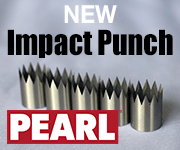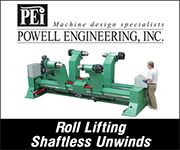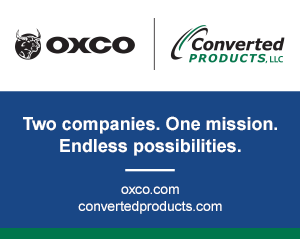CMM Conference Planning Yields Something for Most Everyone
- Published: July 01, 2002, By Yolanda Simonsis, Associate Publisher/Editor
Looking toward an improved economy, Paperloop VP Leo Nadolske and CMM show director Jane McDermott held a conference planning meeting for CMM Intl. on June 26. While the Converting Machinery/Materials Exhibition and Conference won't be held until April 14–17, 2003, there's lots to do before the show opens.
Something about this like-clockwork preparatory meeting always makes me feel comfortably at home, yet strikingly aware of the mountains of work that lay ahead. As someone who has participated on the planning committee for more years than I care to count, I tend to track the industry's evolution by each succeeding edition of CMM shows.
Each time we convene to plan the conference portion of the show, I think about the first CMM I attended in 1981. It was CMM3 held in Atlantic City, NJ. I remember the amusement park on the boardwalk catching fire and burning to the ground. I recall having my first Philly Steak sandwich, being pregnant with my first child, and brown hair rather than the gray I find today.
Then the conference programs were planned by Norm Abrams (the first to be honored with CMM's Lifetime Achievement Award) and other industry gurus. The early conferences were so popular that standing room only was the only way to get in. It seemed technical information was sorely lacking and available only at a premium.
Following the PackExpo tradition, it appears CMM set a trend in the converting industry that caught on like wildfire. Before you knew it, various exhibitions began to focus on specific niches within the converting industry (e.g., LabelExpo) and/or expand (e.g., Graph Expo and Print added Converting Expo while Converflex appeared alongside other venues including Grafitalia and IPEX).
As for other conference organizers, associations have developed finely honed subject matter tailored to their members' needs. There's now an abundance of seminars from which to choose. The seminar business model provides many benefits: sorely needed technical training; exposure for the technical presenters (usually suppliers); and a pretty decent revenue stream for many of the organizers as well.
While it's difficult to plan a conference program that meets the needs of a broadly divergent converting industry, CMM has called upon the close affiliations it has cultivated since its first show in 1977 to plan a program that will meet a wide diversity of technical interests. Fred Shapiro now heads the effort to organize conference subject matter with the input of many industry organizations that help isolate the hottest and most innovative technologies.
Perhaps the beauty of attending any show and conference program that cuts across so many technologies is that attendees can find practically anything they need at one show and at a reasonable price. While CMM is many months away, the organizers are hard at work to provide the broadest selection of something for everyone to maximize a converter's capabilities to serve its customers who expect all things from its suppliers. In times like these, having even the least competitive edge can make a difference.












